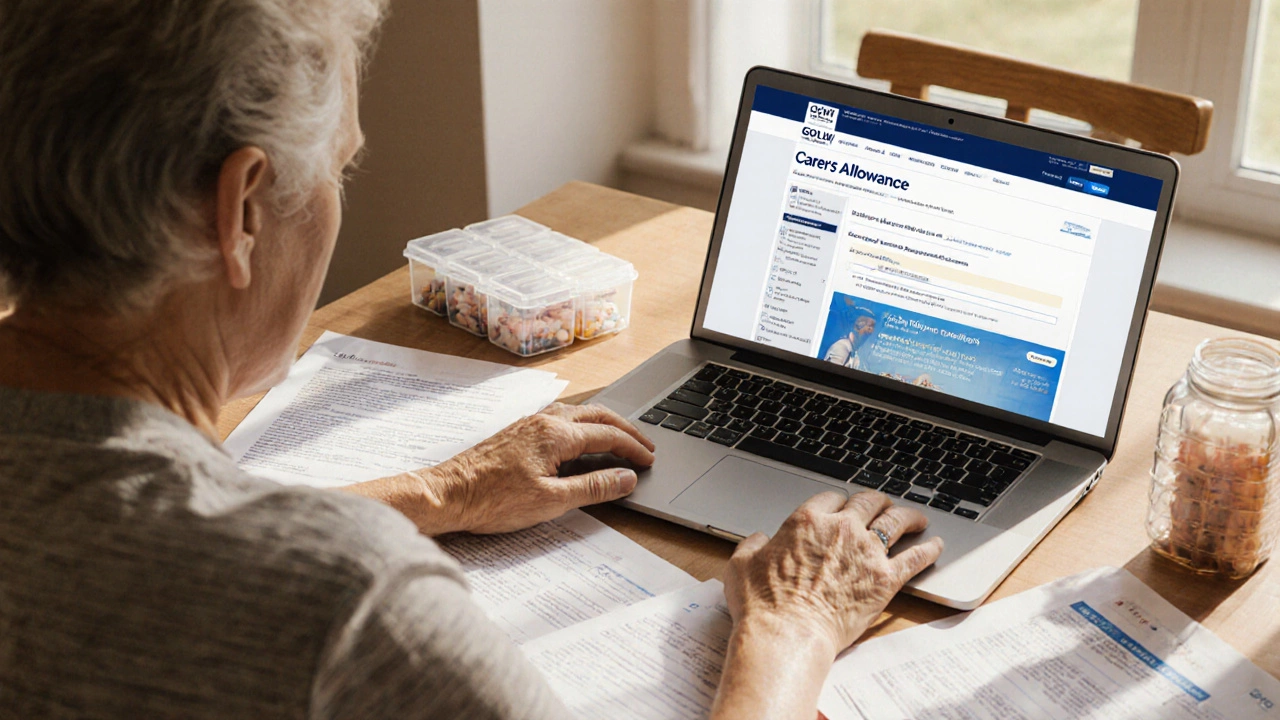Carer's Allowance: What You Can Get and How to Qualify
When you spend most of your week looking after someone who’s ill, disabled, or elderly, Carer's Allowance, a weekly payment from the UK government for people who provide regular care. It’s not a gift—it’s recognition that caring is work, and it matters. This isn’t just about money. It’s about being seen. Around 700,000 people in the UK get it, and many more don’t even know they might qualify.
Carer's Allowance isn’t for everyone. You need to care for someone at least 35 hours a week, and they must be getting certain disability benefits like Disability Living Allowance (DLA) at the middle or highest rate, or Personal Independence Payment (PIP) at the daily living component. You can’t earn more than £151 a week after deductions, and you can’t be in full-time education. It’s not means-tested like some benefits, but it can affect other payments you get—like your State Pension or Universal Credit. That’s why people often get confused. You might be eligible even if you’re not related to the person you care for. A neighbor, friend, or even a tenant can qualify if the care meets the rules.
It’s also not the only support out there. If you’re not eligible for Carer's Allowance, you might still get Universal Credit, a monthly payment for people on low income or out of work, and you can still be recognized as a carer in your claim. Some local councils offer carer’s grants, one-off payments or services like respite care, equipment, or help with bills. And if you’re working part-time while caring, you might be able to claim National Insurance credits, which help protect your future State Pension even if you’re not earning enough to pay into it.
Many people think they have to quit their job to get help. That’s not true. You can work and still claim—just not too much. Others think they need to be a family member. They’re wrong. The person you care for doesn’t have to live with you, and you don’t have to be related. What matters is the time you give and the level of support you provide. If you’re spending most of your day helping someone get dressed, cook meals, manage medication, or just keep them safe, you’re doing the work—and you deserve support.
There’s no single form to fill out that solves everything. You have to apply through the government’s website or by phone. But once you start, you’ll find guides, phone lines, and local groups ready to help you through it. You’re not alone. The posts below show real stories, step-by-step guides, and practical tips from people who’ve been there. Whether you’re just starting to think about applying, stuck in the paperwork, or wondering what else you can get, you’ll find answers here—no jargon, no fluff, just what works.

How to Get Paid by the Government to Take Care of a Family Member
Learn how to get paid by the government to care for a family member in the UK. Discover Carer’s Allowance, Direct Payments, Scottish top-ups, and how to avoid common mistakes that stop people from claiming what they’re owed.